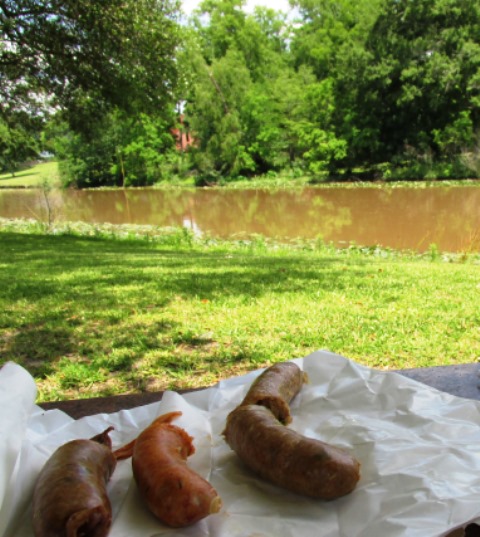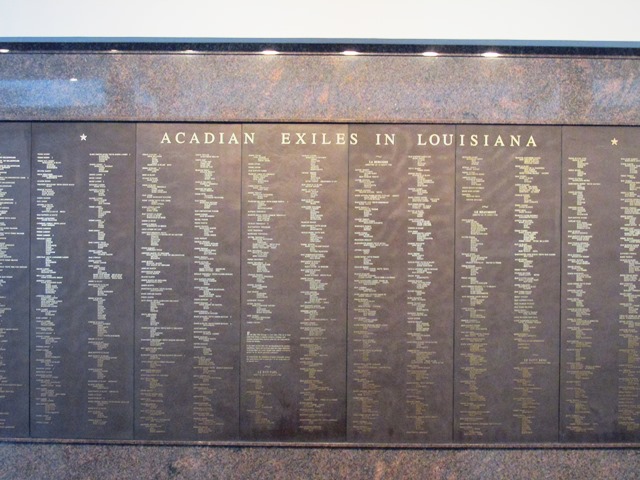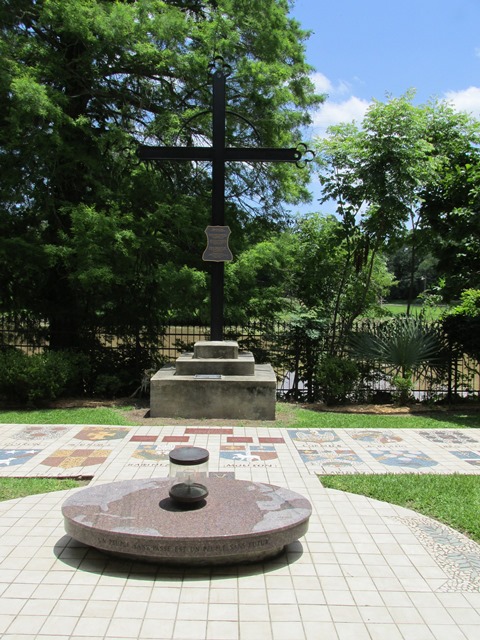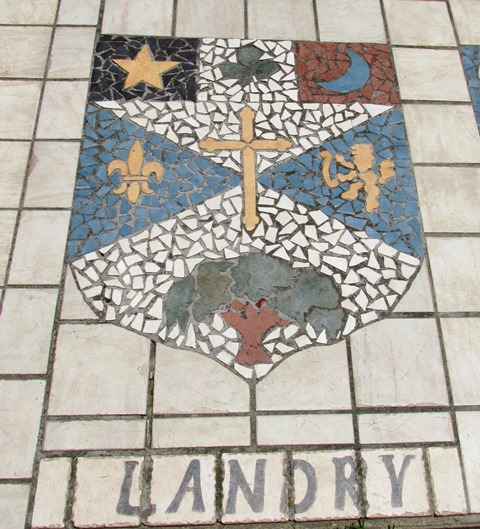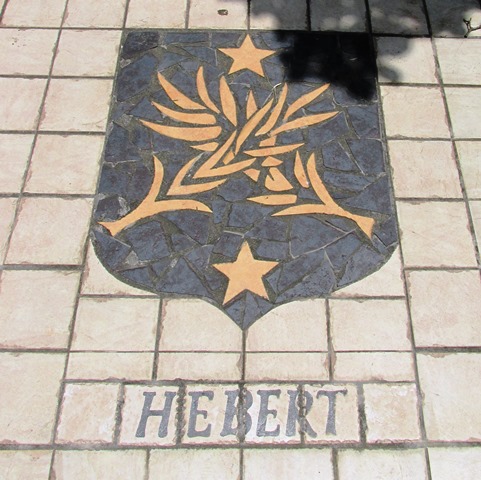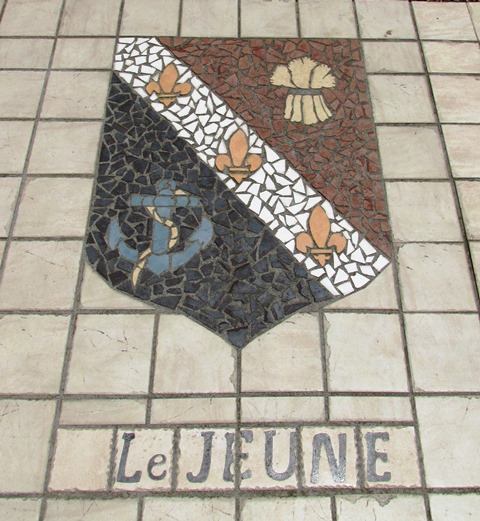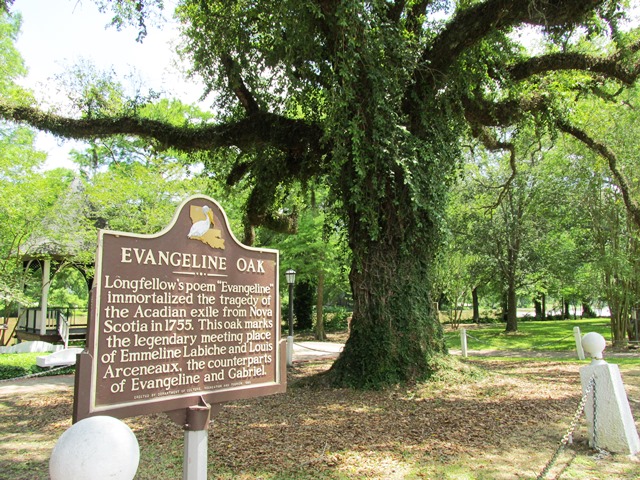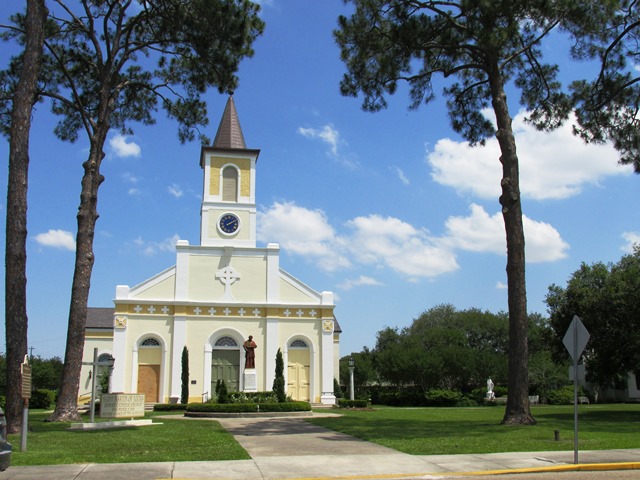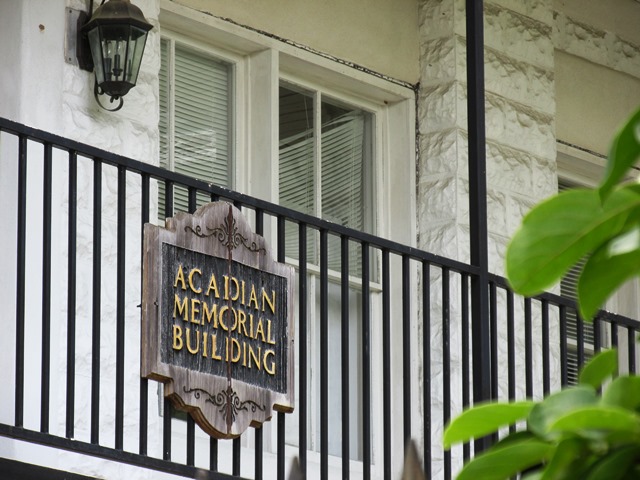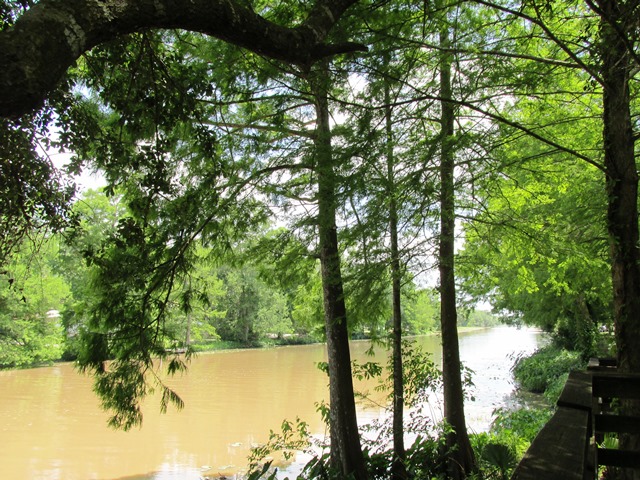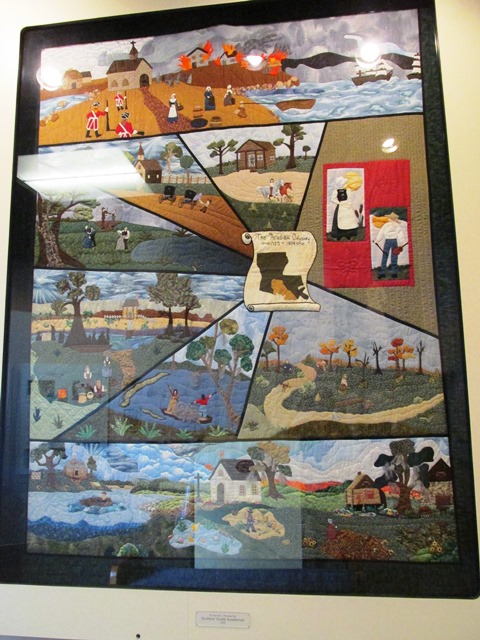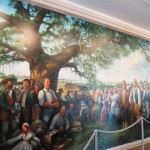 To walk the history of our Acadian ancestors from Acadie to south Louisiana at the Acadian Museum gives us a better appreciation of who we are as a people and a better understanding of the trials and hardships endured to make us who we are today. Located in St Martinville, everything at the museum is presented in both English and French. French is the second language of south Louisiana and for some Cajuns it is their first language. Just as the English tried to destroy families during the exile from Acadie, schools from the 1920s to the 1960s tried to stop the use of Cajun French. But Cajuns are a strong and proud people and our heritage is important so just as the English failed so the schools failed and the Cajun French language survived and is strong today. We Cajuns are proud of our past and of our language.
To walk the history of our Acadian ancestors from Acadie to south Louisiana at the Acadian Museum gives us a better appreciation of who we are as a people and a better understanding of the trials and hardships endured to make us who we are today. Located in St Martinville, everything at the museum is presented in both English and French. French is the second language of south Louisiana and for some Cajuns it is their first language. Just as the English tried to destroy families during the exile from Acadie, schools from the 1920s to the 1960s tried to stop the use of Cajun French. But Cajuns are a strong and proud people and our heritage is important so just as the English failed so the schools failed and the Cajun French language survived and is strong today. We Cajuns are proud of our past and of our language.
But first there is food. On our way to St Martinville on a lazy Sunday afternoon we first found ourselves at Charlie T’s in Breaux Bridge, LA for boudin. Charlie T’s is no modern quick stop type store – spit shined and polished, this is the tried and true Cajun stop off that you may hesitate to enter but afterwards you are glad you did and know you will return. “We’re out of BBQ Ribs” we were told as we entered the store. “How about boudin” we asked? “Smoked chicken, seafood and pork; hot and ready to eat,” was the reply. In a park overlooking Bayou Teche we munched down on the best boudin we’ve eaten (in our opinion). Afterwards, we could have spread a blanket on the bayou bank and easily “put an equal strain on all parts”, as a friend of ours used to say.
But we digress, from the museum in St. Martinville we walked next door to the Acadian Memorial honoring the “3,000 Acadian men, women and children who found refuge in Louisiana after British forces exiled them from Acadie”. Included in the memorial is a wall of names, a mural with stories to tell, and a meditation garden. Walking toward the Wall of Names we were anxious to touch the names of our ancestors and draw their spirit into us. There is an inscription on the wall, “Pause friend, read my name and remember…” Our hearts are heavy when we think about what our ancestors endured but there is also joy when we realize what Louisiana offered and has offered each generation since. We each touched names of our past – Hebert, LeJeune, Landry, Babin and with each touch felt the pain, joy and fortitude that has made us who we are today.
The Meditation Garden borders Bayou Teche and offers a peaceful serene setting to remember the exiled Acadians. It is the site of a replica of the Grand-Pré Deportation Cross. The original cross dedicated in 1929 near Grand-Pré, Nova Scotia marks the site of embarkation of over 2,000 Acadian farmers and tradesmen and their families in 1755. Other commemorative crosses will be in areas where Acadians landed after the Deportation. The garden also houses the Eternal Flame symbolizing the ability of a culture to rekindle despite great hardship. As the inscription reads “Un peuple sans passé est un peuple sans future” (A people without a past are a people without a future.) We Acadians know our past and are a strong culture today because of the fortitude of our ancestors.
The sidewalks in the Meditation Garden contain mosaics of Acadian Family Coats of Arms. The tile pieces are symbolic of the families separated by exile and reunited in Louisiana.
Outside the museum area is the Evangeline Oak Park. The main attraction of the park is the ancient live oak tree named the Evangeline Oak. Emmeline Labiche and Louis Arceneaux are said to have met under this tree after being separated from Acadie. The meeting was not happy since Louis had married another and Emmeline had always searched for Louis. It is the most visited spot in St. Martinville since the late 1800s after the publication of Henry Wadsworth Longfellow poem, Evangeline, in 1847. The poem describes the meeting using the fictional Evangeline and Gabriel.
Up the street and around the corner is the St. Martin of Tours Roman Catholic Church touted as the “Mother Church of the Acadians”. As Cajuns we cannot vouch for that designation but we certainly felt the spirit of our Acadian ancestors as we walked the various historic paths of St. Martinville.

